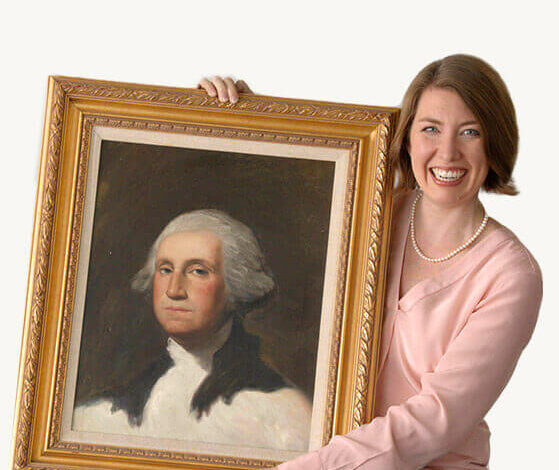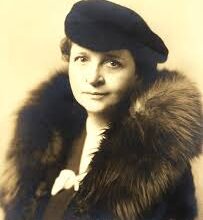Elizabeth McQueeny Biography: Bio, Wiki, Net Worth, Age (2025)

Elizabeth McQueeny Biography: Elizabeth McQueeny is a name that holds a special place in the history of television, particularly in the world of Western TV shows.
McQueeny was brought to life by the iconic actress Bette Davis, who made her mark in the 1959 episode “The Elizabeth McQueeny Story” of the highly regarded Wagon Train series. This episode is notable for its storytelling and portrayal of a complex female character in a genre traditionally dominated by male figures.
Elizabeth McQueeny’s character was more than just a plot device; she was a multifaceted woman who navigated deception, societal expectations, and personal growth, becoming one of the most memorable roles of Wagon Train.
The character’s legacy endures, thanks to Davis’s exceptional performance, and McQueeny continues to resonate with audiences even as we approach 2025. She remains a symbol of resilience, leadership, and strength, challenging the stereotypical roles that women were expected to play in Western television.
This biography will delve into the character of Elizabeth McQueeny, the influence of Bette Davis’s portrayal, the episode’s impact, and how McQueeny’s legacy still holds relevance in television history. We will explore her role, implications for gender representation in media, and how her story continues to inspire.
Elizabeth McQueeny Biography
Full Name: Elizabeth McQueeny
Portrayed by: Bette Davis
Occupation in the Episode: Educator and Showgirl Leader
Age: The character’s age is not specified, but Bette Davis was 51 when filming the episode in 1959.
Real Name: Bette Davis
Net Worth: Elizabeth McQueeny, as a fictional character, does not have a specific net worth. However, Bette Davis’s net worth at the time of her death was around $2 million.
Nationality: American
Bette Davis portrays Elizabeth McQueeny, a central figure in Wagon Train’s episode “The Elizabeth McQueeny Story.” McQueeny, a strong and determined woman traveling west with a group of young girls, initially presents herself as someone with a noble mission—to establish a finishing school for women on the frontier. However, as the story unfolds, the audience discovers that McQueeny’s real goal is far from innocent; she leads a troupe of showgirls.
This revelation of her true intentions serves as the central conflict in the episode, as McQueeny’s deception and her leadership abilities are challenged by the other wagon train members. Throughout the episode, McQueeny is forced to confront her journey, navigate the societal constraints imposed on women, and earn the respect of those around her. Her character, portrayed with depth and nuance by Bette Davis, is a perfect example of how women in the frontier were more than just wives, mothers, or passive participants in the world.
Character Overview and Development in Wagon Train
Elizabeth McQueen’s Introduction: A Deceptive Start
When Elizabeth McQueeny and her group of girls first appear in Wagon Train, they are introduced as respectable travelers with a critical mission. McQueeny is portrayed as an elegant, composed woman traveling to the western frontier with a plan to start a finishing school. Her composed demeanor and the girls’ refined appearances suggest that McQueeny fits the mold of a pioneering educator and leader in the American West.
However, as the story unfolds, it becomes clear that McQueeny’s mission is more complex than it appears. Rather than establishing a school, McQueeny’s true goal is to lead a troupe of showgirls on a journey to entertain the people they meet. The revelation of her deception shocks the other travelers on the wagon train, causing a rift and sparking tension within the group. This sets the stage for the central conflict of the episode: McQueeny’s struggle to redeem herself and gain the respect of those around her.
Conflict and Growth: McQueeny’s Redemption
Despite the initial deception, Elizabeth McQueeny’s character develops throughout the episode. She is not portrayed as a simple villain; instead, she becomes a woman who shows vulnerability, strength, and leadership as the story progresses. McQueeny’s transformation is rooted in her ability to confront her mistakes, accept responsibility, and grow from her challenges.
One of the key turning points in McQueeny’s development occurs when a medical emergency strikes the wagon train, and McQueeny’s group of showgirls steps in to assist with the care of the sick passengers. This moment of altruism allows McQueeny to demonstrate her actual leadership abilities, shifting the perception of the other travelers from skepticism to admiration. McQueeny’s willingness to care for others in a time of crisis highlights her nurturing and resilient nature, transforming her from a figure of deception to one of respect and compassion.
By the end of the episode, Elizabeth McQueeny has undergone a significant personal transformation. What started as a journey of deception becomes a path to redemption, and McQueeny emerges as a symbol of strength, leadership, and resilience.
Bette Davis: The Icon Behind Elizabeth McQueeny
Bette Davis, one of the most renowned actresses in American cinema history, brought Elizabeth McQueeny to life in a way that few could have. Davis, born in 1908, had already cemented her place in Hollywood by the time she took on the role of McQueeny. With an extensive career in film, including iconic roles in All About Eve (1950), Jezebel (1938), and Of Human Bondage (1934), Davis was known for her fierce determination, unparalleled acting talent, and ability to portray complex, strong-willed characters.
Davis’s Influence on McQueeny’s Character
When Bette Davis took on the role of Elizabeth McQueeny, she brought her signature strength and emotional depth to the character. McQueeny could have easily been a one-dimensional portrayal of a woman with a deceptive agenda, but Davis infused the character with layers of complexity. Through her performance, McQueeny became a woman of substance, capable of nurturing those around her and asserting her leadership under challenging circumstances.
Davis’s portrayal of McQueeny is also significant because it allowed for a deeper exploration of the role of women in Western television. During the 1950s, women in Western countries were typically relegated to traditional roles such as mothers, wives, or sidekicks to male heroes. McQueeny, however, was a woman who commanded the story and showed that women could also be leaders and individuals of great depth, capable of making significant decisions and challenging societal norms.
Davis’s Legacy and Her Impact on Wagon Train
Bette Davis’s appearance on Wagon Train brought instant prestige to the series. Western television shows were popular at the time but often lacked the depth and emotional complexity that Davis brought to the role of Elizabeth McQueeny. Her involvement in the episode attracted a large audience and elevated the Wagon Train series to new heights.
Davis’s influence on Wagon Train cannot be overstated. Her powerful portrayal of McQueeny showcased her ability to breathe life into morally complex characters whose stories transcended typical gender expectations of the era. McQueeny’s character, in particular, challenged traditional roles for women in the Western genre, making her an enduring symbol of female strength and empowerment.
Elizabeth McQueen’s Legacy and Impact on Western Television
Challenging Gender Norms in Western TV
The portrayal of Elizabeth McQueeny in Wagon Train was groundbreaking, especially when viewed within the context of 1950s television. Westerns, particularly those produced during this time, often featured women in traditional roles, such as wives or mothers. These women were typically passive and relegated to supporting roles while the male characters drove the action. However, Elizabeth McQueeny defied these expectations.
By presenting a female character who was both a leader and a complex individual with her agenda, McQueeny broke free from the conventional roles assigned to women in the frontier. She was a multifaceted character who demonstrated courage, vulnerability, and resilience; her story was one of personal growth and redemption. This portrayal of a strong, independent woman in a male-dominated world was progressive for its time and continues to be an essential moment in television history.
Elizabeth McQueen’s Impact on Female Representation in Media
Elizabeth McQueeny’s role in Wagon Train significantly impacted how women were depicted in Western television. At a time when female characters were often confined to secondary roles, McQueeny was a central figure who drove the story forward. Her character proved that women could be the protagonists in Western narratives and that their experiences, ambitions, and growth were just as valuable and compelling as those of male characters.
The lasting influence of McQueeny’s portrayal can be seen in the evolution of female characters in Westerns and beyond. Over time, female roles in Western television and film have become more complex, with women often taking on leadership roles and having storylines that are not merely defined by their relationships with male characters. Elizabeth McQueeny, portrayed by Bette Davis, was an early precursor to this shift in representation.
Fun Facts About Elizabeth McQueeny and Bette Davis
- First Female Leader in Wagon Train: Elizabeth McQueeny was one of the few female characters in Wagon Train who took on a leadership role, paving the way for more complex female characters in later Western television.
- Bette Davis’s Star Power: Known for her roles in films such as All About Eve and The Little Foxes, Bette Davis’s involvement in Wagon Train helped elevate the show’s reputation and attracted a broader audience.
- Themes of Deception and Redemption: The episode revolves around McQueeny’s journey of redemption as she transitions from a deceptive figure to a respected leader.
- Influence on Female Representation: McQueeny’s role in Wagon Train helped break new ground for women in Westerns and television, presenting a complex female character who defied expectations.
Conclusion
Elizabeth McQueeny’s character, portrayed by the legendary Bette Davis, remains one of the most memorable figures in the history of Western television.
McQueeny’s complex portrayal gave audiences a fresh and nuanced perspective on women’s roles in the American frontier. Her deception, redemption, and leadership journey continue to resonate with viewers, offering a timeless example of strength and resilience.
The impact of Wagon Train’s “The Elizabeth McQueeny Story” extends beyond its time, as McQueeny’s character played a pivotal role in challenging traditional gender roles in Westerns and television. In 2025, Elizabeth McQueeny’s legacy continues to inspire strong, multifaceted female characters in modern media, proving that women’s stories in the Wild West are just as important as those of men.
Call to Action
If you enjoyed learning about Elizabeth McQueeny and Bette Davis’s iconic portrayal, share this biography with friends and fellow Wagon Train fans. Explore other episodes from Wagon Train to discover more memorable characters that helped shape Western television. Let the legacy of Elizabeth McQueeny inspire you to explore the complexities of women’s roles in both historical and fictional settings.




